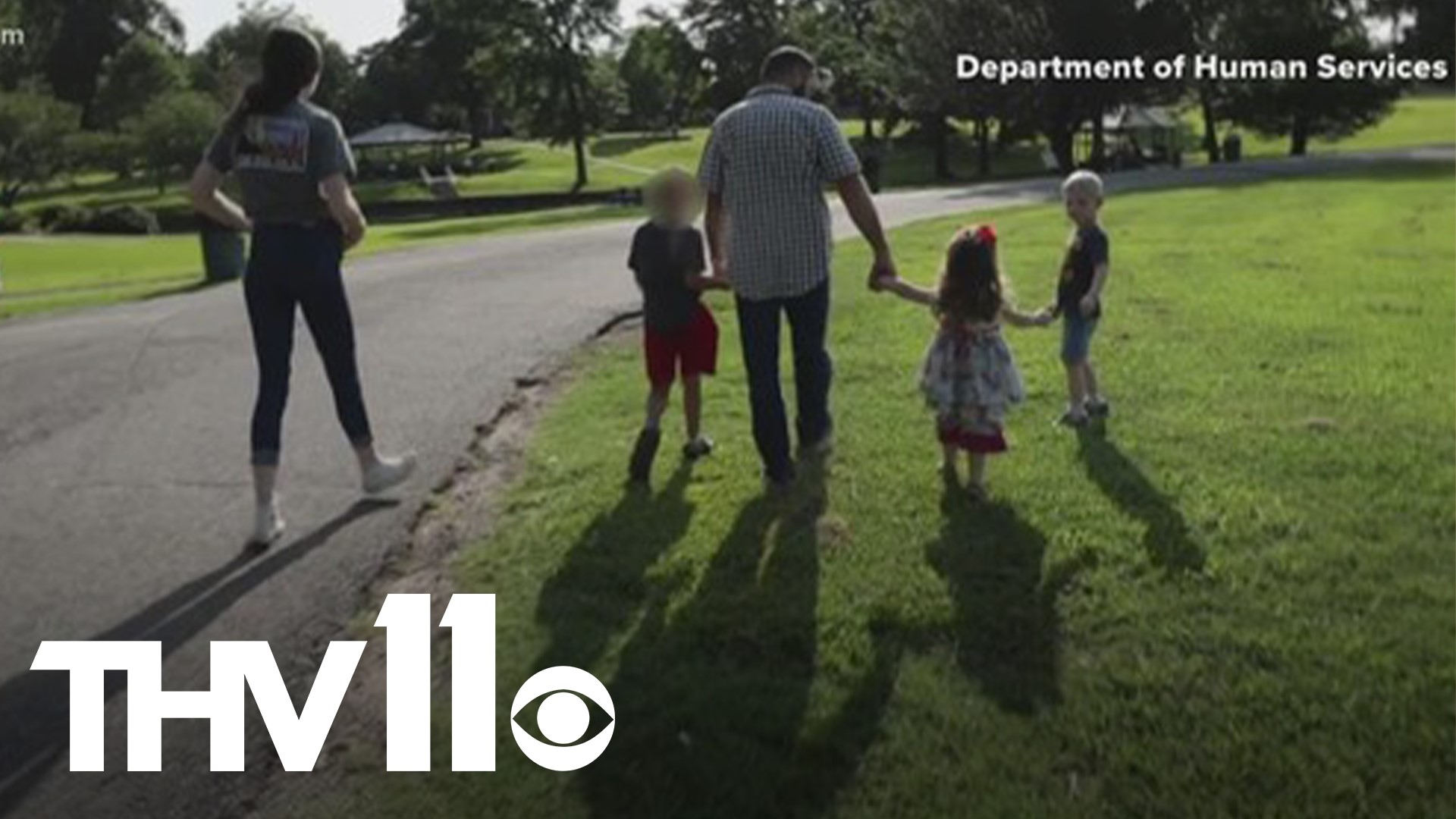LITTLE ROCK, Ark. — Over the course of the pandemic, more and more foster children have entered into the foster care system. However, there have been significantly less foster homes to house the youth in need.
Now, the Division of Children and Family Services (DCFS) is asking for more adults to become foster parents.
Marilyn and Hiller Suber have been foster parents with the department for the past two decades, with their selfless work recently earning them the "Arkansas Foster Parents of the Year" title.
"DHS ain't gone tell you everything. Some things you got to find out for yourself. I never know what kind of trauma a lot of times that the child has endured," Marilyn said.
Her husband, Hiller said their method of parenting works for both parties involved--foster parents are able to feel the kid out while the child is able to feel the parents out.
Since becoming foster parents 21-years ago, more than 350 teenage girls have come through the Suber's home in Monticello.
"You have to be able to take care of kids without DHS. I'm saying it in that way, because if a person's going in to it all about the money, it's not all about the money. It's about the child," Marilyn said.
Right now across the state, there's more children in need than there are available homes. This is something the Department of Human Services said was only made worse by the pandemic.
"I wish we could say that we had enough, but we don't," Laci Lawlis, Arkansas DCFS's Foster Care Manager said.
Lawlis said fostering is more than just having a home for kids in need.
"My biggest thing is, make sure you have a big support system, relatives that can help. Friends, maybe your church community, maybe your work community because it'll take a village," she said.
She had a list of reminders for Arkansans that may be looking to foster:
- The process can take anywhere between four to six months.
- You must be 21-years old and in good health.
- Single adults are eligible to apply.
- Couples have to demonstrate a stable and healthy relationship.
- Parents need to complete CPR and first aid certification, along with 30-hours of pre-service training.
They also wanted to remind that good intentions are great, but simply wanting to help isn't enough. Families looking to adopt need to be in a position that makes them able to actually help.
"Our goal is to always put kids in foster family homes. They deserve to be in a home-like setting," said Lawless.
DHS said parents must provide to the financial, medical, educational, and emotional needs of a child without solely relying on the state, despite the funding that they have available.
When it comes to adoption, there's extra attention payed on emotional needs as many of the children come from troubled circumstances.
The Suber family know exactly what it's like to have to deal with a child's past, and how it can be a lot to handle.
"The worst case scenario is when we had a young lady, I think that talked about suicide a lot and so that kind of scared me. We are foster parents, don't get me wrong, but to deal with that, I'm not equipped to deal with that," Marilyn said.
The Suber family is one of the few foster homes that primarily focuses on teens only.
Last year, close to 50% of children aged 10-17 were placed in homes each month according to a DHS report.
"We want siblings to be placed together. That's our big value and we want our foster parents to value that as well," said Lawlis.
She said that's the last thing that they want to do when they're having to remove children and place them in a foster home. They don't want to separate them from their siblings.
Overall, the main goal of foster homes is to provide children with an environment where they can feel safe and loved.
People like Lawlis that these children face a lot of trauma, which could potentially be a lot for any adult looking to make a difference.
"It is hard. It's not going to be easy. We have kids with some complex behaviors because they've experienced trauma. The trauma of abuse or neglect that brought them into care in the first place. As well as the trauma of being removed from their family. So they got a lot going on," Lawlis said.
Throughout it all and the challenges that it might present, she said that's the reason why they do they job.
For those looking for more information, you can visit here.

